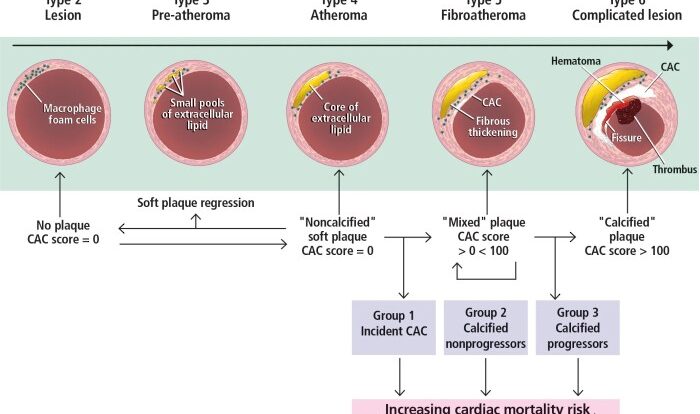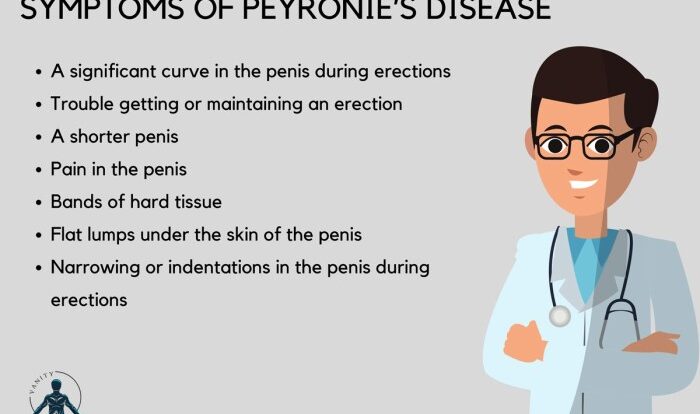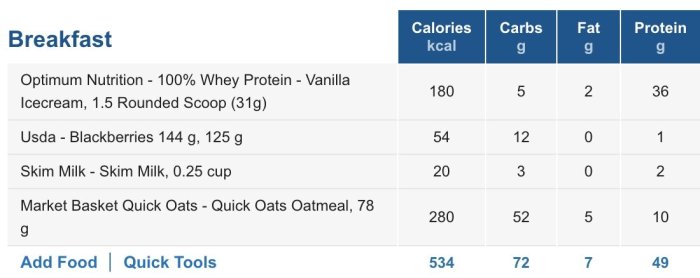Embark on a journey to decipher the perplexing question, “Why am I not losing weight after gastric bypass?” This comprehensive guide delves into the intricate factors that may be hindering your weight loss progress, empowering you with knowledge and strategies to achieve your desired outcomes.
From understanding calorie intake to addressing emotional challenges, this exploration unravels the multifaceted nature of weight loss after gastric bypass, providing invaluable insights and practical solutions.
Understanding Calorie Intake
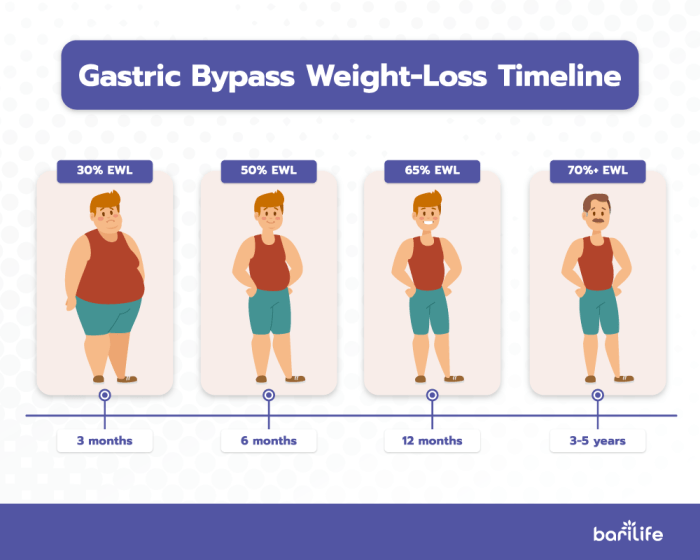
After gastric bypass surgery, it’s crucial to track your calorie intake to ensure you’re consuming the right amount of calories for your body’s needs and weight loss goals. Consuming too many calories can hinder your weight loss efforts, while too few calories can lead to malnutrition and other health issues.
To maintain a calorie deficit, it’s important to estimate your calorie intake accurately. You can do this by using a calorie-tracking app, consulting with a registered dietitian, or simply paying attention to the portion sizes and calorie content of the foods you eat.
Tips for Estimating Calorie Intake
- Use a calorie-tracking app to log your food intake. Many apps also provide nutritional information and allow you to set calorie goals.
- Read food labels carefully and pay attention to serving sizes. It’s easy to underestimate calorie intake if you’re not aware of the portion sizes you’re consuming.
- Weigh and measure your food using a food scale or measuring cups. This helps ensure accuracy in estimating calorie intake.
- Be mindful of hidden calories in beverages, sauces, and condiments. These can add up quickly and contribute to your overall calorie intake.
- Consult with a registered dietitian for personalized guidance and support in estimating your calorie intake and developing a tailored weight loss plan.
Dietary Modifications
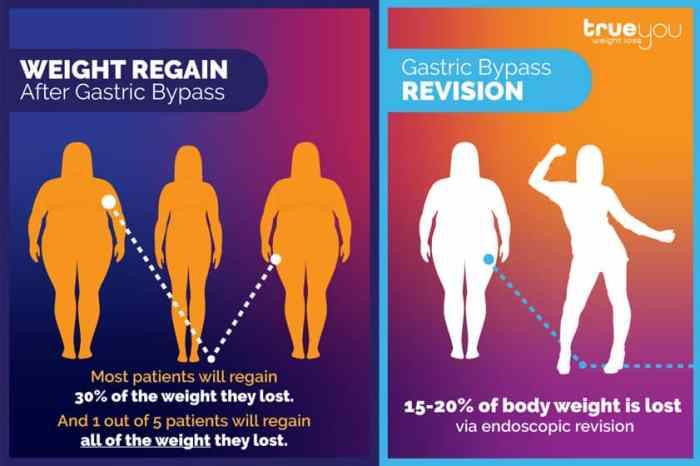
After gastric bypass surgery, following specific dietary guidelines is crucial for successful weight loss and overall well-being. These guidelines help patients adjust to their reduced stomach size and promote healthy eating habits.
In the initial stages post-surgery, a liquid diet is typically recommended. Gradually, patients transition to a soft food diet and eventually to a regular diet. Throughout these stages, certain food choices and portion sizes are emphasized to support weight loss and prevent complications.
If you’re wondering why you’re not losing weight after gastric bypass, it’s worth considering the number of laser tattoo removal sessions you’ve had. The ink in tattoos can contain heavy metals that interfere with the body’s metabolism, potentially slowing down weight loss.
How many sessions of laser tattoo removal will you need to remove these metals and get your weight loss back on track? It varies depending on the size, color, and age of your tattoos, but a consultation with a professional can give you a better idea.
Food Choices
Post-gastric bypass, it is recommended to focus on nutrient-rich foods that are low in calories and high in protein. Lean protein sources, such as grilled chicken, fish, tofu, and beans, help promote satiety and preserve muscle mass. Whole grains, fruits, and vegetables provide essential vitamins, minerals, and fiber.
Examples of healthy food choices include:
- Lean protein: 3-4 ounces per meal
- Whole grains: 1/2 cup cooked per meal
- Fruits: 1 cup fresh or 1/2 cup canned per day
- Vegetables: 1-2 cups cooked or 2 cups raw per day
Macronutrient Balance
Macronutrients, including protein, carbohydrates, and fats, play crucial roles in weight loss after gastric bypass. Understanding their functions and maintaining a balanced intake is essential for successful weight management.
Protein, Why am i not losing weight after gastric bypass
- Protein is essential for building and repairing tissues, promoting satiety, and preserving muscle mass.
- Aim for 60-80 grams of protein per day, distributed evenly throughout meals.
Carbohydrates
- Carbohydrates provide energy and fiber, which promotes satiety and digestive regularity.
- Choose complex carbohydrates such as fruits, vegetables, and whole grains over refined carbohydrates like white bread and sugary drinks.
Fats
- Fats are essential for hormone production, cell function, and nutrient absorption.
- Limit saturated and trans fats from processed foods and choose healthy fats from sources like avocados, olive oil, and nuts.
Hydration: Why Am I Not Losing Weight After Gastric Bypass
Staying hydrated is crucial after gastric bypass surgery. Adequate fluid intake promotes proper digestion, prevents dehydration, and supports overall well-being.
Aim for 6-8 glasses of water or other calorie-free beverages per day. Avoid sugary drinks, as they can hinder weight loss and contribute to dehydration.
Tips for Staying Hydrated
- Carry a water bottle throughout the day.
- Drink a glass of water before and after meals.
- Sip on electrolyte-rich drinks during exercise.
- Choose water-rich fruits and vegetables, such as watermelon and cucumbers.
Physical Activity
Regular physical activity is crucial after gastric bypass surgery, as it plays a significant role in weight loss and overall well-being. Exercise helps increase calorie expenditure, builds muscle mass, and improves insulin sensitivity. It also enhances mood, reduces stress, and promotes better sleep quality.
Appropriate Types and Intensity of Exercise
Choose exercises that you enjoy and can sustain over time. Start slowly and gradually increase the intensity and duration of your workouts. Aim for at least 150 minutes of moderate-intensity aerobic activity or 75 minutes of vigorous-intensity aerobic activity per week.
Examples of moderate-intensity activities include brisk walking, swimming, and cycling. Vigorous-intensity activities include running, playing sports, and dancing. Resistance training, such as weightlifting or using resistance bands, is also beneficial for building muscle mass and boosting metabolism.
If you’re not losing weight after gastric bypass, it might be time to consider whether thyroid problems are contributing. Thyroid issues can affect metabolism and weight loss. If you’re experiencing symptoms like fatigue, weight gain, or changes in mood, it’s worth getting checked out by a doctor.
Can you go to urgent care for thyroid problems ? Yes, urgent care can be a good option if you need immediate attention for thyroid issues, but it’s always best to consult with a specialist for ongoing care and management.
Behavioral Factors
Emotional eating, stress, and unhealthy habits can sabotage weight loss efforts after gastric bypass. Understanding these behavioral factors and developing strategies to address them is crucial for long-term success.
Emotional eating involves using food to cope with negative emotions like stress, boredom, or sadness. Identifying triggers and developing alternative coping mechanisms is essential.
Stress Management
- Engage in stress-reducing activities like exercise, meditation, or yoga.
- Seek professional help if stress becomes overwhelming.
- Avoid using food as a coping mechanism.
Unhealthy habits, such as excessive snacking or grazing, can hinder weight loss. Breaking these habits and establishing healthy routines is key.
Breaking Unhealthy Habits
- Identify triggers for unhealthy habits.
- Develop a plan to replace unhealthy habits with healthier alternatives.
- Seek support from a therapist or dietitian.
Medical Conditions
Certain medical conditions can interfere with weight loss after gastric bypass. Understanding the impact of these conditions is crucial for addressing any potential obstacles and ensuring successful weight management.
Thyroid Disorders
Thyroid disorders, such as hypothyroidism, can affect metabolism and make it challenging to lose weight. Hypothyroidism occurs when the thyroid gland doesn’t produce enough thyroid hormones, which slows down the body’s metabolism. This reduced metabolic rate can hinder weight loss efforts, even after gastric bypass.
Medications
Medications, both prescription and over-the-counter, can influence weight loss after gastric bypass.
Certain medications may slow down metabolism, increase appetite, or interfere with the absorption of nutrients. Understanding these interactions is crucial for successful weight management.
Antidepressants
- Selective serotonin reuptake inhibitors (SSRIs) and serotonin-norepinephrine reuptake inhibitors (SNRIs) can increase appetite and weight gain.
- Tricyclic antidepressants can slow down metabolism.
Antipsychotics
- Atypical antipsychotics, such as olanzapine and risperidone, are known to cause significant weight gain.
- These medications can increase appetite, alter metabolism, and affect glucose regulation.
Steroids
- Glucocorticoids, such as prednisone, can increase appetite and fluid retention, leading to weight gain.
- They can also interfere with the absorption of nutrients.
Hormonal Contraceptives
- Some hormonal contraceptives, particularly progestin-only methods, can cause fluid retention and weight gain.
- Estrogen-containing contraceptives may have less of an effect on weight.
Other Medications
- Anticonvulsants, such as valproic acid, can increase appetite and weight gain.
- Beta-blockers, used to treat high blood pressure, may slow down metabolism.
Psychological Factors
Weight loss after gastric bypass can be a challenging journey, both physically and emotionally. Various psychological factors can influence weight loss outcomes, including emotional eating, body image issues, and depression.Understanding these challenges and developing coping mechanisms is crucial for long-term success.
Emotional Eating
Emotional eating involves using food to cope with negative emotions, such as stress, anxiety, or sadness. After gastric bypass, this behavior can hinder weight loss efforts.To address emotional eating, consider seeking professional help from a therapist or counselor. They can help identify triggers, develop coping strategies, and promote healthier eating habits.
Realistic Expectations
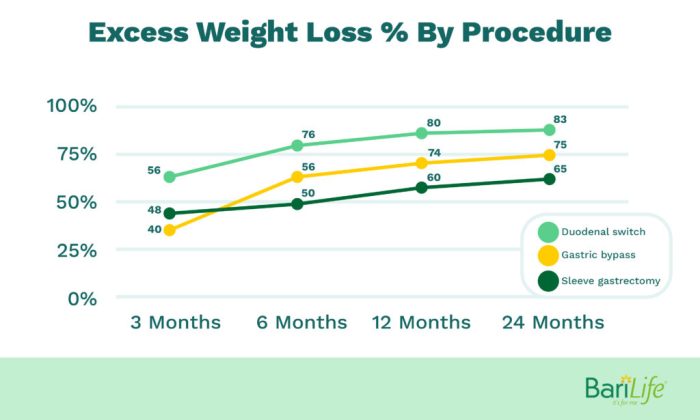
After gastric bypass surgery, setting realistic weight loss goals is crucial. Expecting to lose a significant amount of weight rapidly can lead to disappointment and discouragement.
After undergoing gastric bypass, many people wonder why they aren’t losing weight as expected. While there can be various reasons for this, one unexpected factor that can contribute is smoking. Research has shown that smoking can affect the body’s metabolism and hormone levels, potentially hindering weight loss efforts.
Similarly, becoming an egg donor requires a certain level of physical and hormonal balance. For instance, the impact of smoking on egg quality and the hormonal regulation of the menstrual cycle can be affected by smoking. By addressing both the issue of smoking and exploring other potential causes, individuals can gain a better understanding of why they may not be losing weight after gastric bypass.
It’s essential to understand that weight loss after gastric bypass is not linear. There will be periods of rapid weight loss, followed by plateaus where weight loss slows down or stalls. These plateaus are normal and should not be discouraged.
They provide an opportunity for your body to adjust to the changes and stabilize its metabolism.
Patience and Perseverance
Patience and perseverance are key during this journey. Focus on making gradual, sustainable lifestyle changes rather than drastic measures. Remember that weight loss is a marathon, not a sprint, and it requires consistent effort over time.
End of Discussion
Unveiling the reasons behind stalled weight loss after gastric bypass empowers individuals to make informed choices and adopt effective strategies. By addressing dietary modifications, behavioral patterns, and potential medical factors, this guide provides a roadmap to reignite weight loss and achieve lasting success.
Common Queries
Can I eat whatever I want after gastric bypass?
No, it is crucial to follow recommended dietary guidelines and portion sizes to prevent complications and ensure successful weight loss.
Why am I gaining weight after gastric bypass?
Weight gain after gastric bypass can be attributed to factors such as excessive calorie intake, inadequate physical activity, or underlying medical conditions.
How long does it take to lose weight after gastric bypass?
Weight loss after gastric bypass typically occurs gradually over a period of 12-18 months, depending on individual factors.
Is gastric bypass a permanent solution for weight loss?
Gastric bypass can be an effective long-term solution for weight loss, but it requires ongoing lifestyle changes and adherence to medical advice to maintain results.
